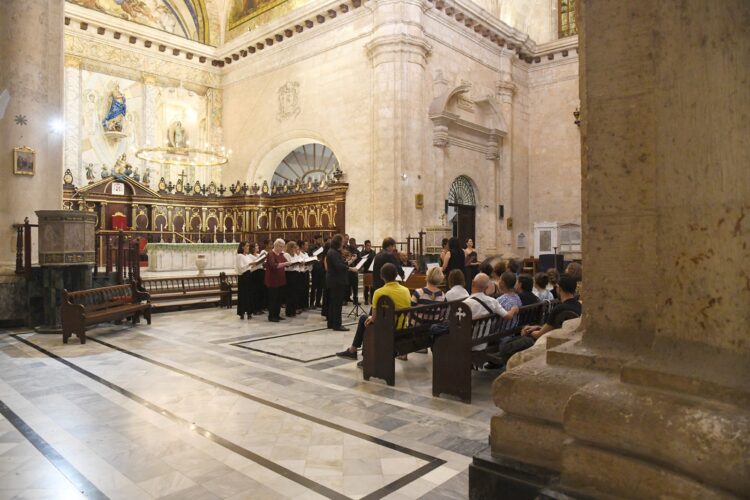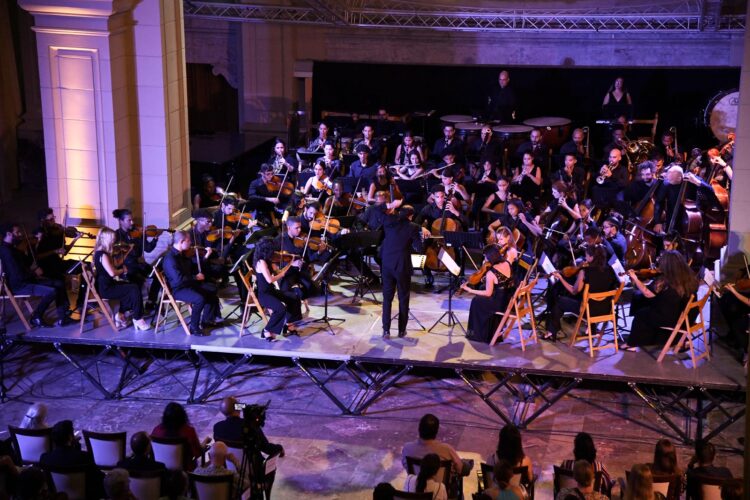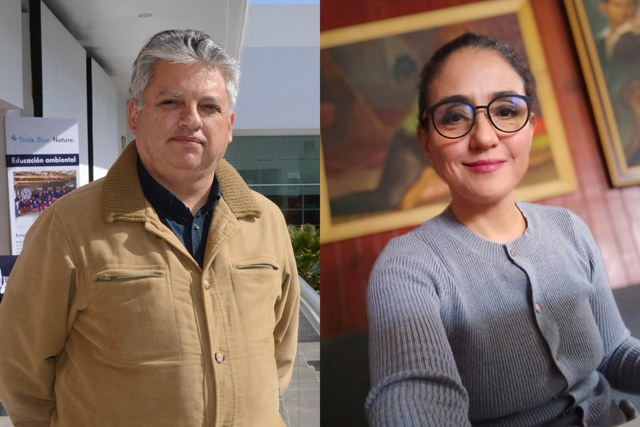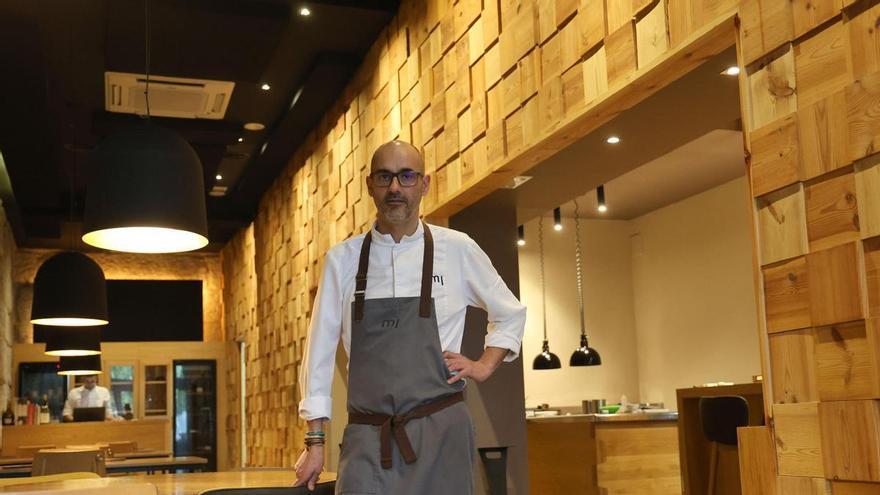Founded in 2015, the Havana Mozart Festival has become a premier classical music event in Cuba. Today it becomes a meeting point and an excuse to bring together distinguished national and foreign musicians in the capital.
The event bears the stamp of Ulises Hernández Morgadanis, an excellent pianist and composer who does not content himself with making music sound, he also enjoys teaching and conducting it, for which he resorts, for example, to organizing unique events and performances, which become learning opportunities for young players.
One of those events envisioned by Maestro Ulises Hernández is the Havana Mozart Festival which, since last Sunday, October 1, has connected the main music halls of the historic center of Old Havana with excellent music and masterful performances.
The event will conclude on Saturday, at six o’clock in the evening in the Minor Church of the Monastery of San Francisco de Asis, and will be performed by the young Cuban clarinetist José E. Rodriguez, and the Lyceum Orchestra of Havana, conducted by the young Cuban clarinetist José E. Rodriguez. He is also the musical director of the festival José Antonio Méndez Padrón.
To find out the details, the workers spoke with the general director of the Havana Mozart Festival, Maestro Ulises Hernandez.
How did the idea of organizing the Havana Mozart Festival come about?
The Lyceum Mozartiano of Havana was established in 2009. Between the years 2013-2015 we had a project with the European Union called “European Classical Music in the Surroundings of Old Havana”, which helped us introduce ourselves in Europe. Latin America and the United States of America
The impact of the project and the volume of international musical figures who visited us led us to create the Havana Mozart Festival in 2015. Since then, we have held the festival every year in October.
As time passed, the event became stronger. It has an increasingly diverse program that includes premieres of works by world-famous Cuban and foreign composers. In each edition we join excellent artists who want to share their music and knowledge.
It is worth noting that we were the pioneers in opening a teaching space in the form of workshops and master classes, within a festival, an experience that today occurs in almost all organized music events in Cuba.
What characters were introduced in the context of the festival?
The list is very long, but I can mention names like Ronal Zollman (Belgian director); Walter Reiter (English conductor and violinist); Jorge Rutter (Argentine director); Renaud Capson (French violinist); Florent Huguet (French clarinetist); Thomas Hengelbrock (German conductor and violinist); Sarah Willis (German cornetist); Johannes Honsig Erlenburg, President of the Mozarteum Foundation in Salzburg; Rene Pape (German baritone); Benjamin Schmud (Austrian violinist); Roberty Mamo (French pianist); Lester Chiu (French Cuban clarinetist); Ariane Heering (American pianist); Libya Hernandez (Cuban-Dutch director); Michelle Schumann (American pianist); Tatiana Chigova (Russian violinist); Dora de Marines (Argentine pianist); Ella van Bock (Dutch cellist); Michael Dabrowski (violinist USA); Florian Schüle (German clarinetist) …
In fact, there are many other artists, we should add all the Cuban musicians who attended the festival. I can give you names until tomorrow.
Which concerts would you like to highlight among those that have been organized over eight editions?
I can’t dismiss any of them because the level was so high, I just want to tell you that the concerts we give in Havana Cathedral always have a very special aura, the audience is excited in a different way, and we leave there spiritually renewed.
In this edition, this show took place on October 4 and was titled Surque la Nave al Puerto. Seventeenth-Century Treasures in Spanish Cathedrals, by the Spanish Harmonia del Parnas, conducted by Marian Rosa Montagu, and the Exodi Chamber Choir, conducted by director María Felicia Pérez.

How do you create the program? What elements rank highly when selecting composers and repertoires?
All sessions of the festival have Mozart and his works as a common denominator. We use this composer’s repertoire as an excuse for the connection, because they are very important pieces in the classical musician’s repertoire.

We add to this proposal Cuban music and other composers so that the event offers a wide range of sonic possibilities.
This year’s edition honored musicians Julian Orbon (Avilés, Asturias, 1925 – USA, 1991) and Alicia de la Rocha (Barcelona, 1923-2009). What is the relationship of these musicians to Cuba?
Although born in Spain, Julian Orbon has a very special meaning for Cubans. In the 1940s, together with other important masters of our music, he laid the foundations of the Cuban composition school, the famous group of musical renewal, which under the direction of José Ardívol influenced a generation of musicians. That came later.
Orbon developed an intense intellectual life, was part of the Origenes group and composed musical works in various forms of great importance.
For her part, Alicia de la Rocha is admired and respected as one of the world’s greatest pianists. I don’t think he visited us, but this year we celebrated its centenary in the presence of the Spanish pianist Javier Negrín, who on Tuesday 3 October performed works that were usually part of the repertoire with which La Rocha traveled around the world.
What does the Havana Mozart Festival propose this year?
We propose, above all, a space to enjoy music, and in this sense we have planned the communication of musicians in order to enrich the culture.
The event also provides an opportunity for interpreters to retrain by sharing new knowledge and experiences. For this purpose, the premiere of several pieces of music has been planned, especially at the young pianists’ concert (Wednesday 4th, in the Basilica) and at the closing concert (Saturday 7th).
How important is it that an event like the Havana Mozart Festival is held at the headquarters of the Historian’s Office?
For the city’s eternal historian Eusebio Leal, the most important thing, once a building in the historic center dedicated to culture has been restored and restored, is that it did its job.
I was commissioned to establish a Lyceum and to give musical life to that institution. When we founded the festival and another event that we called “Mozart Way,” he told me that all the rooms and public spaces such as squares and museums were at our disposal so that Mozart’s music could flood Old Havana.




:quality(75)/cloudfront-us-east-1.images.arcpublishing.com/elcomercio/MRLAIPXFJFFP5EZTKEMJXW2Q6Q.jpg)
:quality(75)/cloudfront-us-east-1.images.arcpublishing.com/elcomercio/6QK5ABS3XFADJLGXJU534QJZAA.jpg)